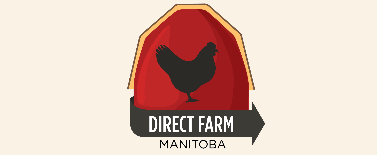Adapted from an article by Carina Millstone, originally published by Resilience.org
Business manuals are full of advice on how to grow your business – how to attract new customers, gain market share, fend off competitors, develop new products and reach new markets – but few consider the desirability or indeed feasibility of business growth. To grow is assumed to be the goal of all businesses, and growth is the yardstick by which we measure the success of company executives. Growth seems to have become an end in itself. This article reflects on the purpose, nature and workings of individual firms in the age of the Anthropocene.
The what? The Anthropocene is a term denoting our new geological era. The Anthropocene is characterized by a wholesale change in our relationship with the natural world. Humans are affecting planetary systems so powerfully that we are changing how they work and the conditions they create. This is the era where human action guides environmental change. Once the preserve of eco warriors, this kind of talk has become mainstream, even mentioned in the Economist (2011) in This Time it’s Different.
We have left behind the geological era, the Holocene, during which human civilization flourished, and entered new, uncertain territory. The most obvious manifestation of the Anthropocene is climate change, “one of the most serious threats facing our world”(David Cameron); “one issue that will define the contours of this century more dramatically than any other” (Barack Obama); the “defining issue of our age” (Ban Ki-moon). Worse, climate change is only the tip of the melting iceberg. Other related and unwelcome features of the Anthropocene include resource depletion, biodiversity loss, species extinctions, ocean acidification and freshwater scarcity. The Economist was right: this time, it is different.
How did we get here? Quite simply, growing economies that require more and more resources to fuel their growth are nonetheless ultimately restricted by the finite planet itself. Our use of natural resources to produce goods and deliver services is bringing the life-supporting planetary ecosystem to its knees. Since the Industrial Revolution, global consumption of resources has skyrocketed. Biomass use has increased fourfold, fossil fuel consumption by a factor of 12, ores and industrial mineral use by a factor of 27, and construction mineral use by a factor of 34. Globally, we now use between 60 and 70 billon tons of materials per year, or 9.2 tons per capita, eight times more than at the turn of last century. In recent decades, the pace has picked up rapidly, with further dramatic increases since the end of the Second World War and 80% growth in resource use in the past 30 years alone. The bulk of resource use, especially mineral use, is attributable more specifically to economic development.
Will resource availability constrain growth? Perhaps not: companies have proven inventive at finding new deposits of sought-after fuels and materials. Yet the extraction, transformation and consumption of resources creates pollution that affects the regulation of the planet’s natural cycles. What may ultimately constrain the use of fossil fuels, for example, is not so much availability but rather limits to how much carbon pollution the planet can soak up. Even the International Energy Agency, not known for its radical environmental agenda, argues that no more than one third of proven reserves of fossil fuels can be consumed by 2050, to keep temperatures within a 2°C rise. In other words, we cannot burn known reserves of fossil fuels, let alone new ones, to have any hope of stabilizing the climate and avoiding the devastating impacts of climate change on water supply, ecosystems, food, coasts and human health. So we’re not so much running out of resources, but out of Planet.
More on Frugal value in coming weeks.
 Wednesday, December 17, 2014 at 7:54PM
Wednesday, December 17, 2014 at 7:54PM 

